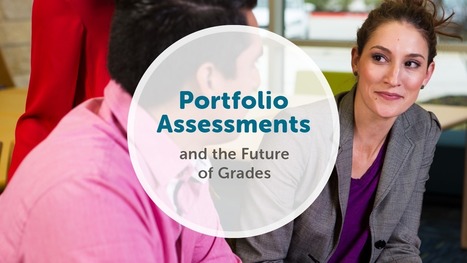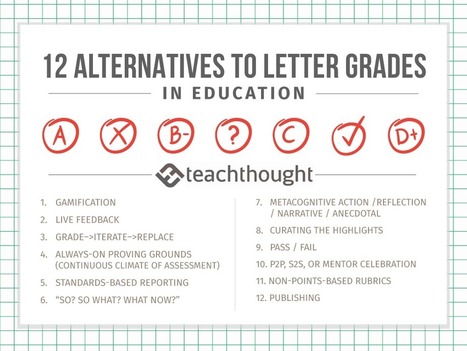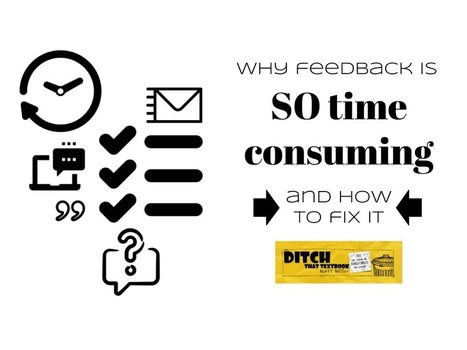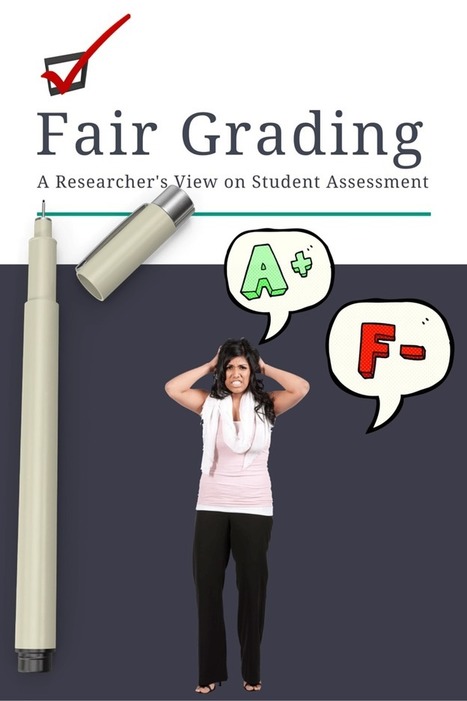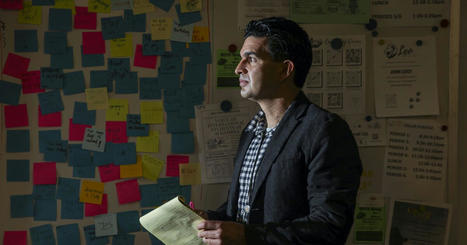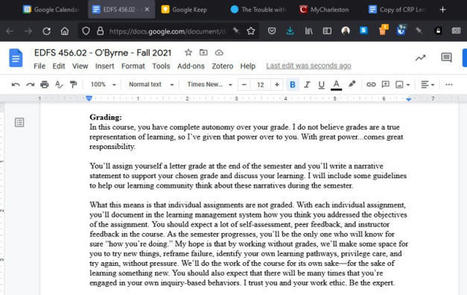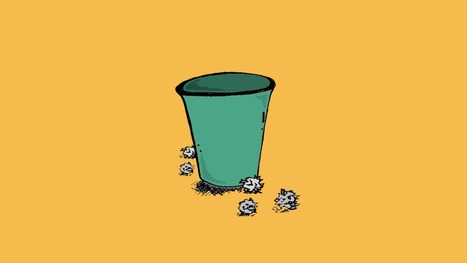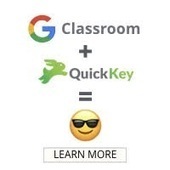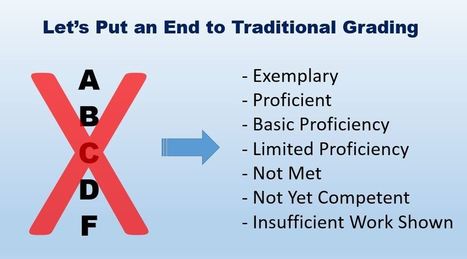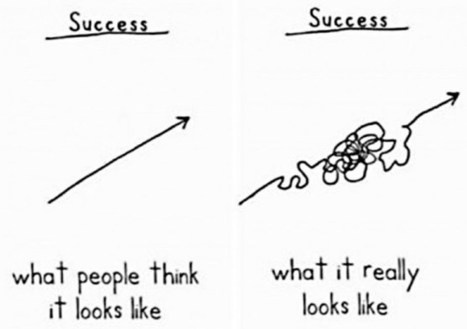By ensuring that their grading methods accurately report content knowledge, teachers can promote and reward student growth.
Get Started for FREE
Sign up with Facebook Sign up with X
I don't have a Facebook or a X account
 Your new post is loading... Your new post is loading...
 Your new post is loading... Your new post is loading...
Shi Xuanquan's curator insight,
March 19, 2016 10:47 AM
I agree with the author, to teach without grades and tests,and also using an online gradebook to record feedbacks, instead of grades, this way, the students would know where they are weaker at and work on it.This could be seen from "Teach without grades. Teach without tests." and "Instead of grading students on their work, Barnes had "a conversation" with them. He used an online gradebook, but instead of applying grades or points or percentages, he recorded feedback and discussions with students."However, I do not agree with the author's saying of " Teach without homework.", as homework are practices of what is taught in class. I predict that the education system in the future would have neither tests nor grades, especially in scenerios where many students fail, which could be seen from this paragraph "For the first 15 years in his career in education, Barnes was, as he described himself, a very traditional teacher, and one who was failing far too many students year after year."I also predict that the future "parents-teachers conference" would not be the parents and teachers meeting up for a talk, but would be online on a digital portfolio. It is a more convenient way to communicate with each other. By having no grades or tests, students can have a choice of not just focusing on the textbook.Students would not get stressed out or worried for their exams.Students would benefit from it,as they would not get stressed out or worried for their exams.However, teachers would be having more work due to a change in system, which could be seen in "Switching to a gradeless system, Barnes said, requires a "systems change": You can't simply keep handing out the same old worksheets and simply decide you're not going to grade them." It is not truly fool proof.One of the disadvantages is that we cannot tell if every student is doing well in class without a test occationally.One of the advantages is that the students are able to discuss their final grade with their teacher, according to the author, "But for end of term grades, Barnes said he would not rely on the average of a set of scores compiled over the semester. Rather, he said, he would sit down with students and discuss what their final grade should be with them."
Shi Xuanquan's curator insight,
March 19, 2016 11:03 AM
I agree with the author, to teach without grades and tests,and also using an online gradebook to record feedbacks, instead of grades, this way, the students would know where they are weaker at and work on it.This could be seen from "Teach without grades. Teach without tests." and "Instead of grading students on their work, Barnes had "a conversation" with them. He used an online gradebook, but instead of applying grades or points or percentages, he recorded feedback and discussions with students."However, I do not agree with the author's saying of " Teach without homework.", as homework are practices of what is taught in class. I predict that the education system in the future would have neither tests nor grades, especially in scenerios where many students fail, which could be seen from this paragraph "For the first 15 years in his career in education, Barnes was, as he described himself, a very traditional teacher, and one who was failing far too many students year after year."I also predict that the future "parents-teachers conference" would not be the parents and teachers meeting up for a talk, but would be online on a digital portfolio. It is a more convenient way to communicate with each other. By having no grades or tests, students can have a choice of not just focusing on the textbook.Students would not get stressed out or worried for their exams.Students would benefit from it,as they would not get stressed out or worried for their exams.However, teachers would be having more work due to a change in system, which could be seen in "Switching to a gradeless system, Barnes said, requires a "systems change": You can't simply keep handing out the same old worksheets and simply decide you're not going to grade them." It is not truly fool proof.One of the disadvantages is that we cannot tell if every student is doing well in class without a test occationally.One of the advantages is that the students are able to discuss their final grade with their teacher, according to the author, "But for end of term grades, Barnes said he would not rely on the average of a set of scores compiled over the semester. Rather, he said, he would sit down with students and discuss what their final grade should be with them."

CHRISTINE OWEN's curator insight,
June 13, 2015 7:25 PM
The need for new types and forms of assessment are inherent in the new pedagogy which is finally making full scale appearances world wide. It's not logical to assess concepts in the same way as we have assessed content. |
|








